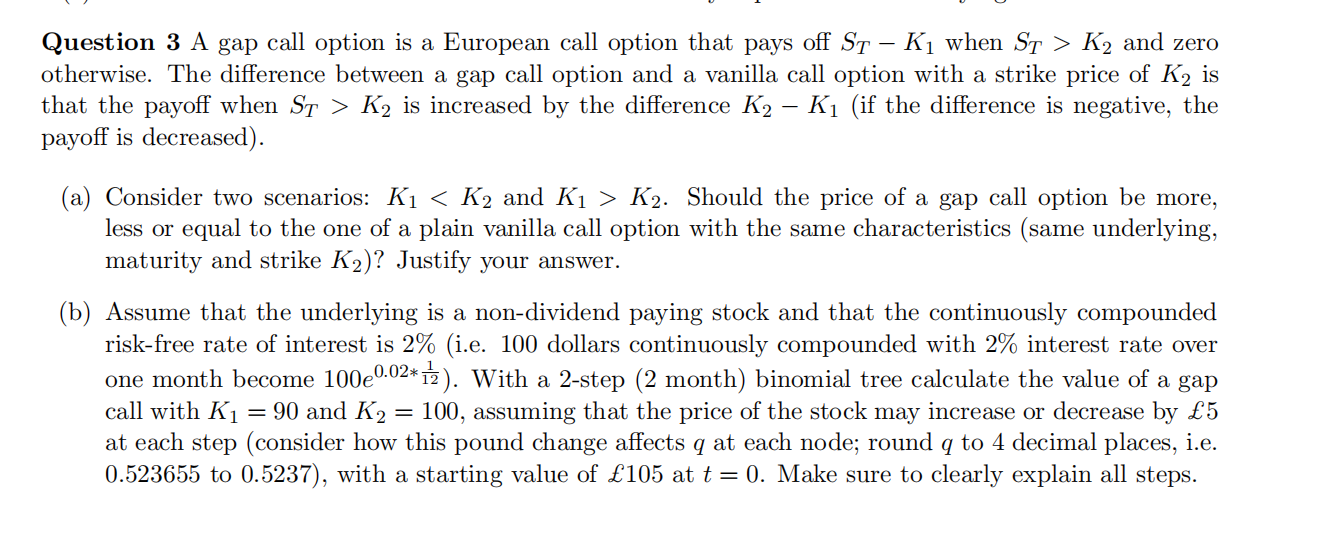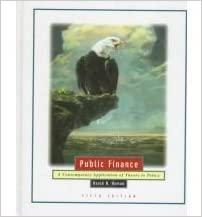
Question 3 A gap call option is a European call option that pays off ST K1 when ST > K2 and zero otherwise. The difference between a gap call option and a vanilla call option with a strike price of K2 is that the payoff when St > K2 is increased by the difference K2 Ki (if the difference is negative, the payoff is decreased). (a) Consider two scenarios: Ki K2. Should the price of a gap call option be more, less or equal to the one of a plain vanilla call option with the same characteristics (same underlying, maturity and strike K2)? Justify your answer. (b) Assume that the underlying is a non-dividend paying stock and that the continuously compounded risk-free rate of interest is 2% (i.e. 100 dollars continuously compounded with 2% interest rate over one month become 100e0.02* 12). With a 2-step (2 month) binomial tree calculate the value of a gap call with K1 = 90 and K2 = 100, assuming that the price of the stock may increase or decrease by 5 at each step (consider how this pound change affects q at each node; round q to 4 decimal places, i.e. 0.523655 to 0.5237), with a starting value of 105 at t = 0. Make sure to clearly explain all steps. Question 3 A gap call option is a European call option that pays off ST K1 when ST > K2 and zero otherwise. The difference between a gap call option and a vanilla call option with a strike price of K2 is that the payoff when St > K2 is increased by the difference K2 Ki (if the difference is negative, the payoff is decreased). (a) Consider two scenarios: Ki K2. Should the price of a gap call option be more, less or equal to the one of a plain vanilla call option with the same characteristics (same underlying, maturity and strike K2)? Justify your answer. (b) Assume that the underlying is a non-dividend paying stock and that the continuously compounded risk-free rate of interest is 2% (i.e. 100 dollars continuously compounded with 2% interest rate over one month become 100e0.02* 12). With a 2-step (2 month) binomial tree calculate the value of a gap call with K1 = 90 and K2 = 100, assuming that the price of the stock may increase or decrease by 5 at each step (consider how this pound change affects q at each node; round q to 4 decimal places, i.e. 0.523655 to 0.5237), with a starting value of 105 at t = 0. Make sure to clearly explain all steps







